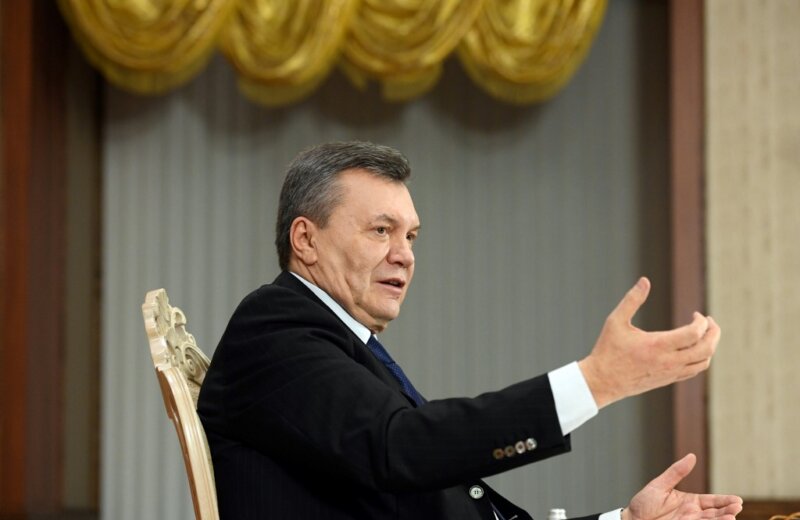A Kyiv court has allowed the State Bureau of Investigations to open a probe in absentia against the fugitive ex-president Viktor Yanukovych, according to the statement published by the General Prosecutor’s Office on Aug. 2.
Yanukovych is suspected of organizing a forceful crackdown on protestors in Kyiv on Feb. 18-20, 2014. The attack on protesters taking part in the EuroMaidan Revolution resulted in 62 casualties.
Over 100 people lost their lives during the EuroMaidan Revolution which ousted pro-Kremlin Yanukovych out of office. Yanukovych has been in hiding in Russia since February 2014.
The Pechersk District Court greenlighted the investigation against Yanukovych on counts of organizing a criminal group, abuse of power, premeditated murder, battery and terrorism.
According to the investigation bureau, Yanukovych, along with the former head of Ukraine’s Security Service Oleksandr Yakymenko and ex-Interior Minister Vitaliy Zakharchenko organized the suppression of street protests using military equipment and firearms.
Yakymenko and Zakharchenko fled to Russia after the EuroMaidan Revolution.
As of July 2021, only two people are in jail for crimes against the participants of the 2013-2014 uprising. Not a single official, police officer, judge or prosecutor has gone to prison for the crimes against the EuroMaidan.
The main EuroMaidan case – which is looking into the murder of 48 protesters in a single day in February 2014 – collapsed after five ex-police officers on trial had been released by the Kyiv Court of Appeal in December 2019 as part of a prisoner exchange between Ukraine and Russian-led militants in Donbas.
Despite that, Yanukovych has already been convicted in Ukraine, for other crimes.
In January 2019, the Obolon District Court in Kyiv found Yanukovych guilty of high treason and abetting Russia in waging a war against Ukraine in 2014. He was sentenced to 13 years in prison in absentia.
The EuroMaidan protests began in November 2013 after Yanukovych refused to sign the Association Agreement with the European Union choosing closer ties with Russia instead. The uprising escalated into a nationwide revolution after protesters were violently beaten by the riot police on Nov. 30.



